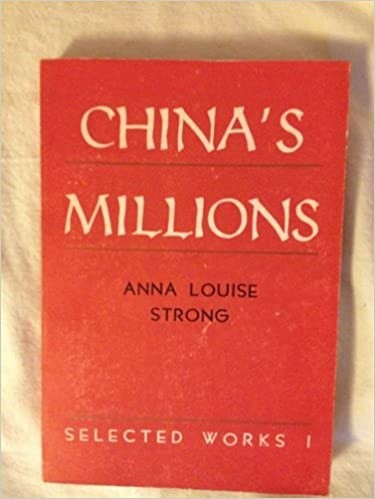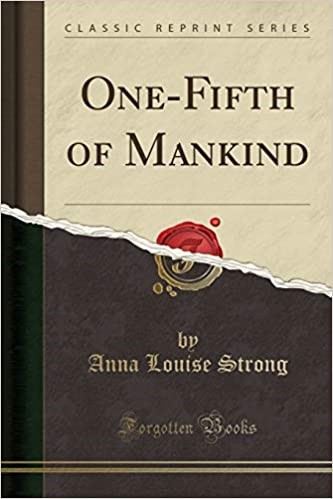China is where I wanted to stay forever — The paper tiger lady's six visits to China

Editor's Note: To celebrate the 100th founding anniversary of the Communist Party of China, we are launching the "100 CPC Stories in 100 Days" series, featuring foreigners who witnessed and participated in the CPC's history and helped the world better understand the CPC. The following is the third story of the series.
Many people must have heard about Chairman Mao Zedong's assertion that "imperialism and all reactionaries are paper tigers". This famous statement served as an inspiration to the Chinese people, boosted their confidence in victory, and played a most significant role in the People's War of Liberation. It owes its publicity to an American journalist, Anna Louise Strong, thus nicknamed the Paper Tiger Lady.
Strong visited China in 1925, 1927 and 1937. In China's Millions, One-Fifth of Mankind, and other books inspired by her visits, Strong told the world how the Kuomintang (KMT) reactionaries betrayed the revolution and suppressed the workers' and peasants' movement, a movement that she hailed as a single spark that could start a prairie fire for the revolution.


At the end of December 1940, the 55-year-old Strong set foot in China for the fourth time. She continued to follow the revolution and went to Chongqing, the wartime capital. The situation there was more tense than it was known to the outside. The KMT reactionaries would soon stage the South Anhui Incident to sabotage the anti-Japanese united front and step up their anti-Communist campaign.
The moment Strong got off the plane, her journalistic instincts alerted her to the stifling atmosphere in Chongqing. Through meetings with UK Ambassador to China Sir Archibald Clark Kerr and other international friends, she learned that the Communist Party of China (CPC) had encountered many difficulties in the united front and that Chiang Kai-shek was about to strike at a well-established military unit of the CPC that was fighting the Japanese in areas south of the Yangtze River.
When Zhou Enlai heard that Strong was in Chongqing at this critical juncture, he invited her over for long talks that lasted several nights in a row. Zhou told Strong that over the past two years, the relationship between the CPC and the KMT had become increasingly tense and that Chiang Kai-shek's generals had provoked one conflict after another. Zhou also told Strong in detail about the KMT's scheme and gave her a 26-page document along with supplementary materials. On behalf of the CPC Central Committee, Zhou solemnly asked Strong to make it public to the world when the time is right. Strong accepted the mission and regarded it as a special honor.




































